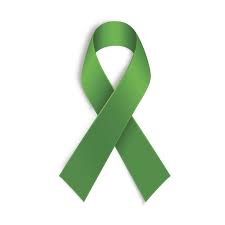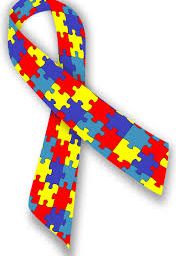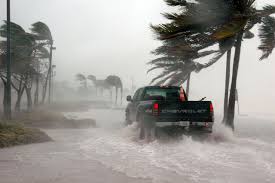
Essential Hurricane Safety Tips for Hurricane Season: Prepare Now
As hurricane season approaches, it’s crucial to arm ourselves with essential safety tips to protect lives and property. From understanding the season’s timeline to creating an emergency plan tailored to our region, there are numerous steps we can take to mitigate risks. Staying informed through local sources, preparing for potential evacuation, safeguarding important documents, and practicing safety measures indoors are also paramount. Let’s unite in preparedness, prioritize safety, and weather the storms with resilience and determination.
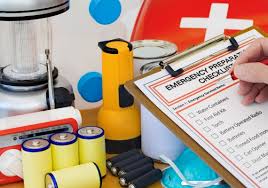
As the tropical winds begin to howl and the rain clouds gather, it’s a reminder that the hurricane season is upon us. These powerful storms have the potential to wreak havoc on our beautiful island, but with the right knowledge and preparation, we can minimize the risks and protect our lives and property. In this post, we will provide essential safety tips to ensure you are well-prepared.
How to weather the hurricane season with confidence.
1. Know Your Hurricane Season:
In St. Lucia, the hurricane season officially runs from June 1st to November 30th. However, it’s important to note that the peak of hurricane activity typically occurs between August and October. During this period, tropical storms and hurricanes are more likely to form and affect our region. Staying aware of the season’s duration and its peak months allows us to be extra vigilant and prepared during these critical times.
2. Create an Emergency Plan:
Living in St. Lucia means we face unique challenges during the hurricane season. Creating an emergency plan specifically tailored to our island’s geography and infrastructure is essential. Start by designating meeting places that are easily accessible and away from flood-prone areas. Establish a communication strategy with your family and friends, identifying the primary modes of contact, such as local phone numbers or messaging apps that work well during power outages. Additionally, compile a list of important contacts, including local emergency services, the nearest medical facilities, and your insurance provider. Stay informed about the evacuation routes and shelters in your specific area, as these may vary depending on your location.
3. Stock Up on Supplies:
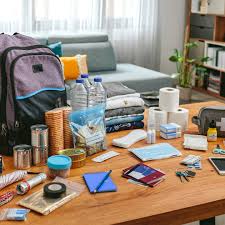
When preparing for the hurricane season, it is crucial to stock up on supplies that cater to your needs and circumstances. Non-perishable food items such as canned goods, granola bars, and dried fruits are excellent choices. Don’t forget to include food suitable for infants, elderly family members, and individuals with dietary restrictions. As for water, it’s recommended to have at least one gallon per person per day for a minimum of three days. The water supply may be affected during and after a hurricane, so it is important to store an ample amount. Additionally, gather essential medications and medical supplies that you or your family members may require during an emergency. Make sure to include extra batteries, flashlights, and a battery-powered or hand-cranked radio for staying informed. A first aid kit containing bandages, antiseptics, and other basic medical supplies is also essential. Lastly, consider including personal hygiene items, extra clothing, and comfort items such as blankets or pillows in your emergency supply kit.
4. Secure Your Property:
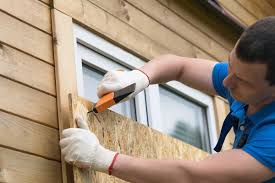
St. Lucia’s unique geography and vulnerability to hurricane seasons make it crucial to take proactive measures to secure our properties. Start by trimming trees and branches near your home to minimize the risk of them falling onto structures during strong winds. Secure loose outdoor items such as furniture, gardening tools, and decorations to prevent them from becoming hazardous projectiles. Reinforce windows and doors with storm shutters, impact-resistant glass, or plywood. Regularly inspect your roof, gutters, and drainage systems, ensuring they are in good condition and clear of debris. If you live in flood-prone areas, consider elevating valuable items or moving them to higher ground. Taking these precautions will help minimize potential damage to your property during a hurricane.
5. Stay Informed with Local Sources:
Staying informed about the latest developments and advisories during hurricane season is crucial for your safety. Rely on local sources such as news outlets, radio stations, and official weather apps or websites that provide accurate and up-to-date information specifically for our region. Local sources have the most relevant information regarding the progress of storms, potential impacts, evacuation orders, and available emergency services. Pay close attention to official advisories and heed warnings from local authorities to ensure you are well-prepared and can make informed decisions to protect yourself and your family during the hurricane season.

6. Prepare for Potential Evacuation:
While we hope to weather the storm safely at home, there may be situations where authorities issue evacuation orders to ensure the well-being of the residents. In such cases, it is important to be prepared to evacuate quickly and efficiently. Pack an evacuation kit with essential items such as important documents (identification, insurance policies, etc.), medications, clothing, personal hygiene items, and any necessary comfort items. Stay informed about the designated evacuation routes in your area and plan your departure in advance to avoid traffic congestion. Be sure to make arrangements for the safety of your pets as well, whether it’s locating pet-friendly shelters or arranging alternative accommodations for them. Following the instructions of local authorities and being prepared for potential evacuation will help ensure your safety and the safety of your loved ones throughout the hurricane season.
7. Safeguard Important Documents:
During a hurricane, it’s crucial to safeguard important documents that are essential for your personal and financial well-being. Gather documents such as passports, identification cards, insurance policies, birth certificates, property deeds, and any other important paperwork. Place them in a waterproof and portable container to protect them from water damage. Additionally, consider making digital copies of these documents and storing them securely in the cloud or on a password-protected external drive. This redundancy ensures that even if the physical copies are lost or damaged, you can still access the necessary information. Safeguarding these documents will help facilitate the recovery process and assist you in dealing with insurance claims or any other necessary legal proceedings following a hurricane.
8. Stay Safe Indoors:
During the height of a hurricane, it’s important to prioritize your safety while staying indoors. Identify a safe room within your home that is away from windows, skylights, and glass doors. This room should ideally be on the lowest level of your home to minimize the risk of structural damage. Ensure that the room is free from any potential hazards or objects that could cause injury. As the storm approaches, close and secure all windows and doors throughout your home. Avoid using candles as a source of lighting, as they pose a fire hazard. Instead, rely on flashlights or battery-powered lamps. Before the storm hits, make sure to charge your electronic devices, such as cell phones and laptops, and conserve their battery life by minimizing non-essential usage. Having access to communication tools and adequate lighting will help you stay connected and navigate through any power outages or disruptions caused by the hurricane season.
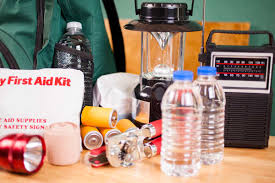
9. Prepare for Power Outages:
During a hurricane, power outages are a common occurrence and can last for extended periods. To prepare for this situation, it’s important to take specific steps:
a. Stock Up on Batteries: Ensure you have an ample supply of batteries in various sizes to power flashlights, lanterns, and radios. Opt for long-lasting and rechargeable batteries whenever possible. Test the batteries in your devices regularly and replace them as needed to ensure they are in working order when the storm hits.
b. Portable Phone Charger: Invest in a portable phone charger or power bank that can keep your mobile devices charged during power outages. This will allow you to stay connected, access emergency information, and communicate with loved ones.
c. Generator Considerations: If you live in an area prone to frequent or prolonged power outages, consider investing in a generator. Generators can provide temporary power to essential appliances and devices in your home. Ensure you have the necessary fuel, follow safety guidelines, and use generators in well-ventilated areas to prevent carbon monoxide buildup.
d. Minimize Food Waste: Prioritize consuming perishable food items from your refrigerator and freezer before the storm arrives. This will help minimize food waste and ensure you have access to fresh food during the initial stages of a power outage. Consider purchasing a cooler and storing essential items that require refrigeration with ice or ice packs to maintain their freshness.
10. Learn Basic First Aid Skills:
During and after a hurricane, access to medical services may be limited. It’s important to equip yourself with basic first aid skills to provide immediate assistance to yourself and others if needed. Here are some steps to take:
a. First Aid and CPR Courses: Enroll in a first aid and CPR course offered by local organizations, community centers, or medical professionals. These courses will provide you with the necessary knowledge and skills to respond to emergencies, perform CPR, and provide basic wound care.
b. Basic Wound Care: Learn how to clean and dress wounds, control bleeding, and apply bandages and dressings. Understanding basic wound care can help prevent infection and promote faster healing.
c. CPR and Rescue Breathing: Familiarize yourself with cardiopulmonary resuscitation (CPR) techniques and rescue breathing. CPR can be a life-saving measure in situations where someone’s breathing or heartbeat has stopped.
d. Injury Assessment and Treatment: Learn how to assess injuries, recognize signs of fractures, sprains, or other trauma, and provide appropriate first aid treatment. This includes immobilizing injured limbs, applying ice packs to reduce swelling, and knowing when to seek medical assistance.
e. Medication and Allergy Management: If you or your family members have specific medical conditions or allergies, learn how to manage them effectively during emergencies. Understand proper medication administration, including dosages and timings, and be aware of any potential allergic reactions.
Remember, while learning first aid skills is valuable, it’s important to recognize your limits. If a situation requires professional medical attention, contact emergency services immediately.
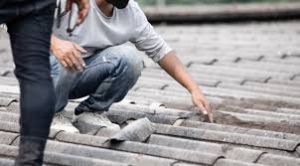
In conclusion, we must be vigilant and prepared for the challenges posed by the hurricane season. By familiarizing ourselves with the local season timeline, creating an emergency plan, stocking up on supplies, securing our properties, staying informed through local sources, preparing for potential evacuation, safeguarding important documents, and practicing safety measures indoors, we can face these storms with resilience and protect our loved ones and our beautiful island. Let us unite in preparedness, prioritize our safety, and weather the storms with strength and determination.
Disclaimer: The information provided in this content is for general informational purposes only. It is not intended as medical or healthcare advice, diagnosis, or treatment. Always seek the advice of a qualified healthcare professional with any questions you may have regarding a medical condition or healthcare decisions.












